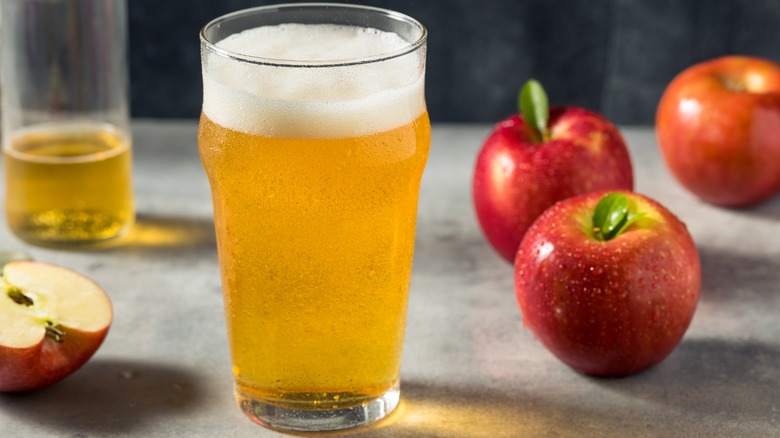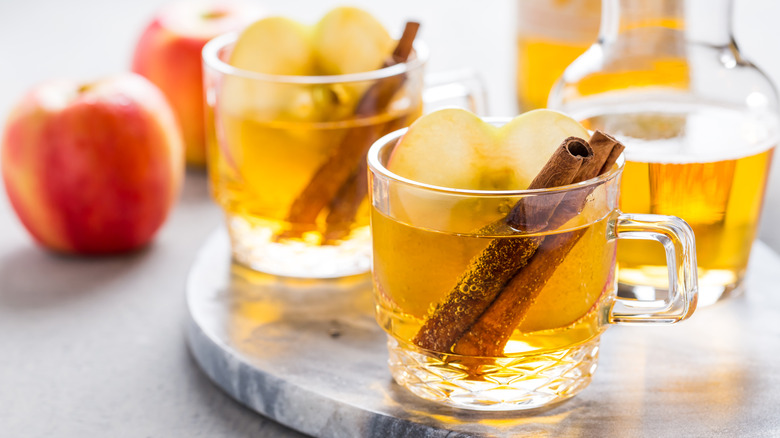Don't Make These Hard Cider Serving Mistakes
When you imagine enjoying a refreshing alcoholic beverage on a hot day, chances are you might be thinking of a chilled light beer, perhaps with a squeeze of lime. However, we urge you not to overlook hard cider. It has the same crisp bubbles as a beer, with the added benefit of a burst of fruitiness. And, like beer, it's available in convenient cans or bottles, so it's easy to serve up at a gathering. If you're new to the hard cider world, there are just a few serving mistakes you want to avoid; Richard Yi, a second-generation cider maker for Brooklyn Cider House at Twin Star Orchards in New Paltz, New York, lends us his expertise and shares what you need to know.
The biggest serving mistake people make — and one that's very easy to remedy — is making the drink too hot or cold. "Serve hard cider chilled!" urges Yi. "Like any alcoholic beverage, temperature plays a huge role in the experience. When served too cold, the ciders seem a bit shy and muted. When served too warm, the bubbles may seem harsh, the aromatics may come across as cooked, and the cider may seem hot and heavy." Similarly, apple cider tastes different when hot versus cold (the heat accentuates aromatics while coldness can dull the sweetness).
So, how chilled is appropriately chilled? "Commercial ciders are designed to be served at refrigeration temperatures of 40 [degrees] Fahrenheit or below. Artisanal ciders should be served at cellar temperature, roughly 45-55 [degrees] Fahrenheit," Yi advises.
Find your perfect flavor
Once you know the temperature at which you should serve your hard cider, focus on flavor. As a rule of thumb, you can pretty much serve your ciders straight out of the cooler or refrigerator. "Since most ciders do not have cork closures and do not have a ton of tannins, there is really no need to aerate or decant the ciders," explains Richard Yi.
However, it could be a mistake not to think about this more carefully if you venture into the world of artisanal, very outside-the-box options. For example, Yi says, "We have a cider called Txangurro that's made with Manchurian Crab apples and has a ton of chalky tannins, that would say otherwise."
If you've picked a cider that isn't quite to your taste, don't worry — turn it into a cocktail and adjust the flavor. While Yi acknowledges that "we try our best to make each of our ciders a complete, balanced, and complex beverage so we don't turn our ciders into cocktails," for those seeking some inspiration, he says, "I would recommend thinking about what goes well with apples. Flavors like cinnamon, whiskey, and ginger could make for something interesting." Unexpected spices that would elevate apple cider, such as cayenne and chili, may also be good options here. If you're looking for some recommendations to get started with, we've ranked a few popular hard cider brands, although we definitely encourage you to see what local offerings are available in your area.

